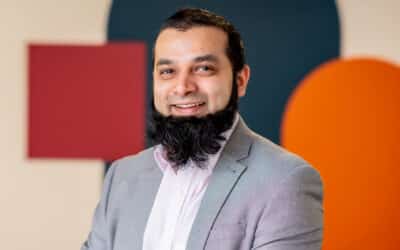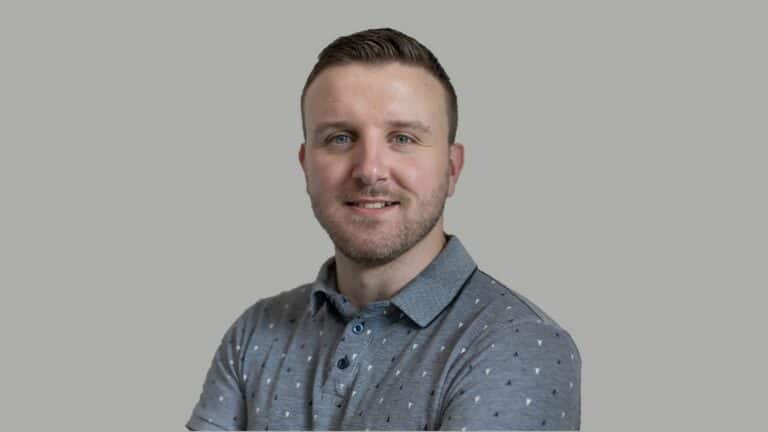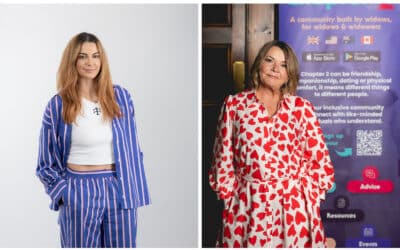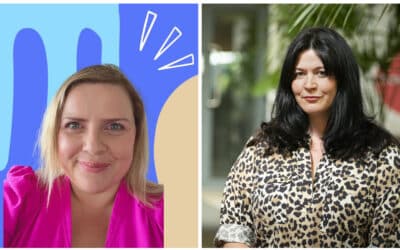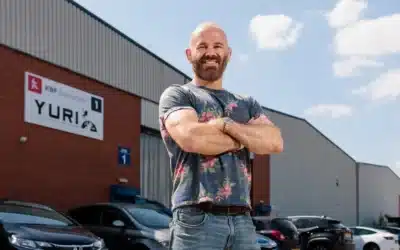Adam Bell is client services director at Yatter.
Headquartered in Edinburgh, the paid advertising agency was founded in 2021 by Gavin Bell and now manages over £10m in client ad spend each year.
Adam Bell has worked in senior marketing roles for over a decade, from start-ups to global household names, specialising in all aspects of paid media as well as CRMs like HubSpot.
Here, he shares his career journey and savvy words of advice for aspiring marketers…
How did you first get into your industry?
Like many marketers, somewhat by chance.
I wanted to be a photographer, but sucked at art so I went to university to study journalism (you know, with a view to becoming a photojournalist…) Having spent two years being told by ex-BBC and Channel 4 journalists that if I wanted a future in media, not to study it (due to how quickly it was changing and the value of a more diverse educational background) I moved to the business school.
I then realised that, like many graduates from English universities, I wanted work experience in addition to my degree and set about applying to internships in media, technology and (for reasons best known to younger me) financial services.
I applied successfully to Microsoft’s internship programme and at the end of a full-day assessment centre (interview, interview, group task, panel, interview…) was presented with three options of role profile “should I be successful”. Two were in Reading and one was in London, which sounded cool. That role happened to be in their “Global Media” team (aka Microsoft Advertising). And the rest, as they say, is history.
What do you love about your job?
The diversity: in clients, campaigns, colleagues. Marketing is the most enjoyable industry out there. It couldn’t be more true that no two days are the same and you really have the opportunity to make your career your own.
Who – or what – has inspired you in your career?
It’s true what they say: people don’t quit companies, they quit managers. I’ve been fortunate to have amazing managers and… not so good ones. I’ve long tried to emulate the best of my experiences and avoid perpetuating the worst.
Starting out in a large corporate environment has always stood me in good stead and I appreciate the value of “process to a point” – some amount is necessary, until it’s there for it’s own sake.
I follow various industry ‘thought leaders”‘, including the likes of Mark Ritson and the seminal works of Les Binet and Peter Field (if you don’t understand The Long and the Short of it, you can’t be a marketer!)
From a “boots on the ground” perspective, I have been fortunate to work with and value the practical leadership of professionals like Dom Hawes, CEO of Selbey Anderson.
What are the biggest challenges about your job?
The same thing I love about it? The amount of change!
There are few industries experiencing disruption at the rate that marketing is. Our platforms, processes and people are first-in-line to be overhauled in lieu of the latest features of AI, while being simultaneously impacted by changes in consumer behaviour as we become more aware of the impact that climate change, geo politics and more are going to have in our lifetimes.
Balancing the need to grow great companies, which also serve their communities and the sustainable development goals we must meet to secure our future, are a key challenge and our responsibility as creative professionals with a great ability to influence culture.
What skills have been the most crucial to you succeeding in your career so far?
It is all about communication. We work in communications. And our ability to communicate effectively with our teams, clients and partners ultimately determine how successful we are.
I’ve long joked that as a generalist, I don’t have a particular skill. I’m not so much “T-shaped” as “M-shaped” – with a few deep specialisms and a lot that connects them together.
I’ve been told I write a good email, which will be fitting for my eulogy!
What was your first salary and what could someone getting into the industry expect to earn nowadays?
I was told not to move to London for less than £17,000. My internship salary was £16,500! I had an approximate budget of £4/day which meant a 14 mile round cycle to work, as I couldn’t afford the tube!
I’m excited about modern routes into the industry such as apprenticeships, allowing people to “learn on the job” rather than study, but I also appreciate the value of education. Depending what level you join at, I would expect a salary around £20K.
What education or training would be most useful for someone looking to follow your career path?
There are some fantastic degree programmes now which prepare people who are more intentional than I was about going into marketing. Robert Gordon University in Aberdeen had the first post-graduate digital marketing qualification in the country and launched their undergraduate programme a few years ago.
It will speak volumes to your potential colleagues if you’ve taken proactive steps to acquire industry-specific qualifications, too. For example via the Institute of Data & Marketing (IDM) and even certificates from the tools we use everyday like Meta and HubSpot.
What advice would you have for someone looking to follow your path?
Be bold. Write those LinkedIn posts. Showcase your passion and experience. Send that DM. If you’re looking for a job, it makes the person hiring feel good that you’ve done your research and reached out to them directly. Personal branding sounds cringe, but it is everything (see my comments on “communication” earlier.)
Then, learn how to influence. It starts with understanding people’s individual goals and agendas and seeing how you can best serve them, or position yourself to serve them.
You really can go anywhere in this industry, if you’re intentional about it. Know what you want to achieve, then go and get it done!



